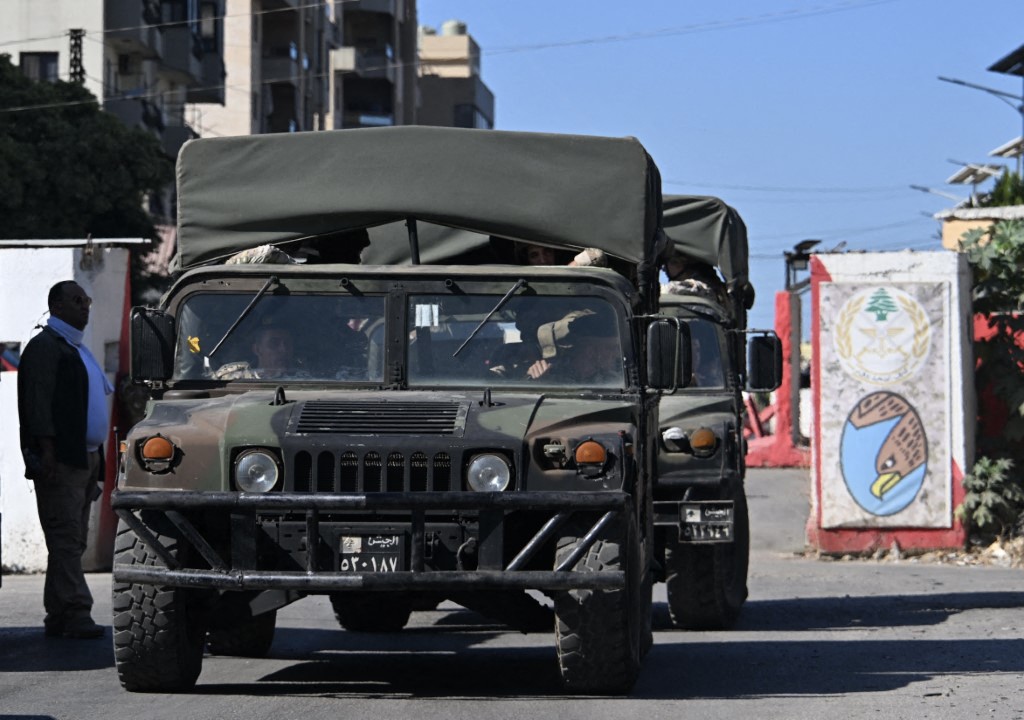In recent days, the Middle East has witnessed a notable wave of Israeli activity—from intensified airstrikes to active diplomatic messaging and expanded field tours—raising a legitimate and open question: Is Israel preparing to open new fronts in the region, or is it instead seeking, in its own way, to impose an equation that carries the promise of a sustainable peace, even if such a peace is enforced by military power?
Examples of what is going through the minds of decision-makers in Tel Aviv are endless.
The Israeli airstrike on the Palestinian Ain al-Hilweh camp near Sidon on Tuesday marked a significant shift in the military strategy applied in Lebanese territory, especially as it was the first time since the November 27 ceasefire last year that Israeli aircraft targeted a site outside Hezbollah-linked facilities.
A troubling indicator or just an isolated incident?
Before that, news of the cancellation of Lebanese Army Commander General Rodolphe Haykal’s planned visit to the United States emerged as yet another component of an increasingly complex political and security landscape.
For Washington, the Lebanese Army is considered a stabilizing force along the border, meaning that any disruption in communication channels suggests either emerging American reservations or an ongoing review of the nature of military assistance, particularly amid Israel’s accelerating operations in the north.
In this context, the ambiguity surrounding the cancellation fits within a tense regional atmosphere, as Washington appears inclined to recalibrate its relationship with Lebanese institutions in line with the likelihood of escalation—or the possibility of containing it—especially after Wednesday night’s notable development, when Israeli forces targeted Hezbollah positions in the town of Beit Lif, just a few kilometers from the Lebanese–Israeli border.
Nawaf Salam… and the Language of “Negotiation” with the Israelis
Also relevant is the position expressed on Thursday by Lebanese Prime Minister Nawaf Salam regarding negotiations with Israel, alongside his government’s commitment to implementing the ministerial statement clause mandating that all weapons be under the control of the Lebanese state. This opens new avenues the United States could exploit to intensify its efforts to contain tensions along the Lebanese–Israeli border, potentially curbing Israeli military escalation—especially since Salam’s position aligns substantively with recent statements by President General Joseph Aoun on negotiating with the Israeli state.
Netanyahu in Southern Syria: A Dual Message to Damascus and Washington
Yet Israeli Prime Minister Benjamin Netanyahu’s field tour in southern Syria—accompanied by the defense and foreign ministers—added a dramatic dimension to the scene, particularly as it came only days after Syrian President Ahmad al-Sharaa concluded his historic visit to Washington, making the tour appear as a direct message that Israel is closely monitoring Syria’s new behavior.
And while Tel Aviv fears that the U.S.–Syrian thaw could open the door for new Syrian deployments near the Golan, Netanyahu’s visit sent a clear message that Israel will not allow any alteration of the long-standing rules of engagement, even if circumstances require pre-emptive military action to block any potential shift.
Between Escalation and Peace by Force
From Lebanon to Syria, the picture appears interconnected: Israel is moving simultaneously on multiple fronts, sending messages in various directions, yet all converging toward one goal—reshaping the region’s security environment to fit its strategic and vital interests, even if that requires calibrated escalation.
The central question remains open: Is Israel laying the groundwork for small and intermittent conflicts to prevent a large-scale war, or is it testing the limits of force to achieve a lasting peace, one closer to imposing a new pace on the region through military power?
Between the two possibilities, the Middle East stands on the threshold of a new phase—one that could open opportunities for settlement or slide into broader confrontations, depending on the scale of the calculations or the gambles that Israel or its adversaries decide to pursue in the coming weeks.
Please post your comments on:
[email protected]
 Politics
Politics







